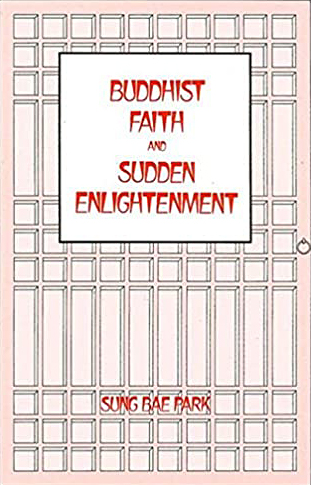No edit summary |
No edit summary |
||
| Line 7: | Line 7: | ||
|BookToc=*{{i|Preface|''vii''}} | |BookToc=*{{i|Preface|''vii''}} | ||
*{{i|Introduction|''1''}} | *{{i|Introduction|''1''}} | ||
<center>PART ONE: FAITH</center> | <center>PART ONE: FAITH</center> | ||
| Line 16: | Line 17: | ||
*{{i|6. The Two Truths and Skill-in-Means|49}} | *{{i|6. The Two Truths and Skill-in-Means|49}} | ||
<center>PART TWO: PRACTICE< | |||
<center>PART TWO: PRACTICE<center> | |||
*{{i|7. The Unity of Faith and Enlightenment in Practice|55}} | *{{i|7. The Unity of Faith and Enlightenment in Practice|55}} | ||
*{{i|8. Bodhidharma's Wall Meditation|59}} | *{{i|8. Bodhidharma's Wall Meditation|59}} | ||
| Line 24: | Line 26: | ||
*{{i|12. Faith as the Practice of Compassion|96}} | *{{i|12. Faith as the Practice of Compassion|96}} | ||
PART THREE: ENLIGHTENMENT | |||
<center>PART THREE: ENLIGHTENMENT<center> | |||
*{{i|13. Sudden Enlightenment and Gradual Practice|105}} | *{{i|13. Sudden Enlightenment and Gradual Practice|105}} | ||
*{{i|14. Faith and Enlightenment in the Hua-yen Sutra|110}} | *{{i|14. Faith and Enlightenment in the Hua-yen Sutra|110}} | ||
| Line 30: | Line 33: | ||
*{{i|16. Revolution of the Basis|126}} | *{{i|16. Revolution of the Basis|126}} | ||
*{{i|17. The Three Gates|133}} | *{{i|17. The Three Gates|133}} | ||
*{{i|Conclusion|137}} | *{{i|Conclusion|137}} | ||
Revision as of 13:01, 18 May 2020
Buddhist Faith and Sudden Enlightenment explains how sudden enlightenment occurs through the awakening of patriarchal faith. This is the non-dual affirmation that one is already Buddha as opposed to the doctrinal, dualistic faith that one can become Buddha. The essence of the presentation is that patriarchal faith forms the basis for sudden enlightenment in Zen meditation. For the practitioner, this book establishes the Zen method of mind-cultivation on a higher level by introducing a new understanding of awakening right faith.
Included is extensive material on the history of faith in Buddhism with the main attention devoted to Ch'an (Zen) and Hua-yen. There are also substantial discussions of Buddhist antecedents to these schools and of the Pure Land School.
This is the first book in English to examine the central role of faith in Mahayana Buddhism. The author's approach develops from his personal experiences as a son (Zen) monk of the Chogye order, which was heavily influenced by the integration of meditation and scriptural study established by Chinul. (Source: Suny Press)
| Citation | Park, Sung Bae. Buddhist Faith and Sudden Enlightenment. SUNY Series in Religious Studies. Albany: State University of New York Press, 1983. |
|---|---|


